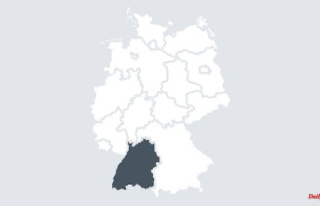About a decade ago, investigators uncovered a rail cartel: manufacturers of railroad products had colluded over a long period of time. Local transport companies saw themselves disadvantaged, now they want money back.
Düsseldorf (dpa / lnw) - The buyers of rails want to get compensation from Thyssenkrupp and other manufacturers because they see themselves as victims of a so-called rail cartel. In a protracted legal dispute, there will be a hearing on Tuesday (10:00 a.m.) before the Düsseldorf Higher Regional Court, a verdict is not expected. The Cologne transport company (KVB), the Ruhrbahn and the city of Dortmund are suing. According to their calculations, they suffered damage of 2.2 million euros because of the price agreements between the suppliers. The track technology subsidiary of Thyssenkrupp and the companies Voestalpine and Balfour Beatty are being sued.
Cartels are forbidden because they slow down competition and thus dig deeper into the pockets of other companies. According to the findings of the Federal Cartel Office, the rail cartel in question existed from 2001 to 2011. However, it is unclear how high the price increases were as a result of the agreements.
The plaintiffs in the Düsseldorf proceedings say that the prices were 25 percent too high as a result of the cartel. However, the calculation of such price surcharges is a tricky matter, after all one has to estimate in retrospect how the prices would have been in a functioning competition - i.e. without a cartel. The defendants are of the opinion that there was no cartel-related damage.
The legal dispute has already come a long way through the courts. In 2020, the Federal Court of Justice required evidence of the financial damage and its amount. Germany's top judge referred the case back to the Düsseldorf Higher Regional Court. Now it is the turn of the court in the state capital again.












